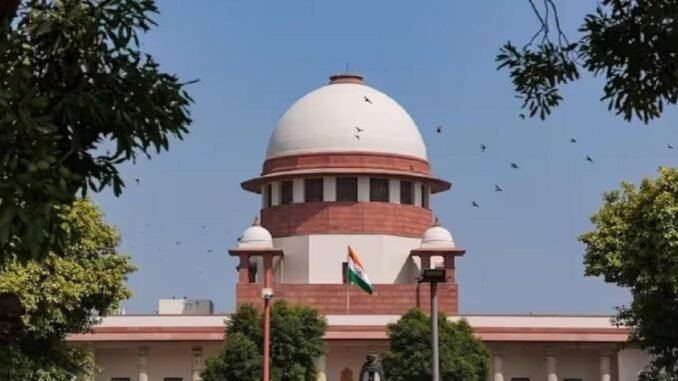
In a historic judgment, the Supreme Court of India has ruled in favor of the legal heirs of a property owner who had been fighting a 63-year-long legal battle against a tenant occupying their property without rightful claim. This case, which dragged on for over six decades, highlights the severe delays and complexities often involved in property disputes in India.
🏠 Background: A Tenant Occupied a Prime Property for 63 Years
The case revolves around a valuable property located in an upscale neighborhood of an Indian city. The original owner had rented out the property in 1952 for a period of 10 years. However, the tenant continued to occupy it well beyond the lease term. In 1962, the property was sold to a new owner, who, in 1965, noticed that the tenants were still occupying the land without permission.
Legal action began soon after, but the owners faced repeated setbacks in various courts over the years. Even after the original owner passed away, his sons continued the legal struggle to reclaim their rightful home.
⚖️ Court Battles Across Generations
- 1974: The owners lost their case in the Supreme Court.
- 1975: They refiled the case in a district court.
- 1999: The case reached the High Court.
- 2013: The High Court again ruled against the owners.
- Despite these setbacks, the owner’s children pursued justice relentlessly.
Finally, on April 24, 2025, the Supreme Court delivered a decisive verdict in favor of the owner’s legal heirs, ordering the tenants to vacate the property.
📜 Supreme Court’s Observations and Ruling
The tenant’s lawyer argued that the children of the deceased owner could not continue a legal case originally filed based on their father’s personal need. The court firmly rejected this argument.
The Supreme Court clarified that “bona fide requirement” must be understood in a broader context, which includes the needs of family members and not just the original petitioner. It cited Section 21(7) of the Uttar Pradesh Urban Buildings (Regulation of Letting, Rent and Eviction) Act, 1972, which allows legal heirs to pursue eviction cases in such situations.
🚫 Court Criticizes the Tenant’s Conduct
The court took a strong stance against the tenant, noting that they had lived in the property for 73 years, 63 of which were without legal standing. Despite having ample time, the tenant made no effort to find alternate housing, clearly indicating intentional and unlawful occupation.
🏁 Final Verdict: Vacate by December 31, 2025
The Supreme Court has ordered the tenant to vacate the property by December 31, 2025, and also instructed them to clear all outstanding rent dues. This judgment is being hailed as a major win for property owners and their rightful heirs.
📌 Why This Case Matters
This ruling sets an important legal precedent in property disputes, reinforcing the rights of owners and their successors. It also sends a clear message to long-term illegal occupants that the legal system, though slow, can still deliver justice—even decades later.
It is a case that underscores the importance of property rights, persistence in legal battles, and the role of the judiciary in upholding lawful ownership in India.

Leave a Reply